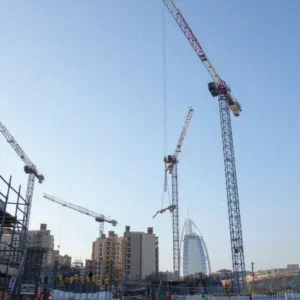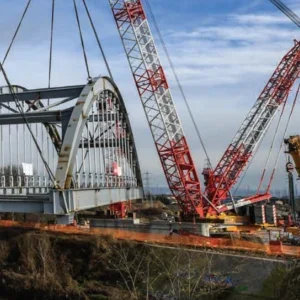ESTA’s European Crane Operators Licence (ECOL) project has taken another significant step forward with the announcement of further backing from leading names in the crane industry and the first official meeting of the new organisation’s Committee of Experts.
The inaugural meeting of the nine-strong experts’ committee took place during Bauma.
It followed the final meeting of ESTA’s ECOL Working Group and signalled the ECOL project’s transition to its new and permanent management structure.
ESTA Director Ton Klijn said: “This may seem like a bureaucratic change, but it is very important. This—and other similar developments that we will be announcing in the coming months— will place ECOL on a professional, stable and long-term footing.
“It will help to ensure that we build into the ECOL system the necessary expertise, transparency and accountability so that the industry at large can have faith in our work and standards.”
The Munich meeting heard that four leading crane manufacturers— Manitowoc, Tadano, Terex and Liebherr—have agreed to align their training operations with the ECOL scheme and its standards, and are currently going through the registration process.
Sarens has applied to qualify its Belgian training facility under ECOL, and Comokra from Belgium, and Fagioli from Italy are expected to follow suit. Already qualified are the Mammoet Academy in the Netherlands and EUC-Lillebælt from Denmark.
“For an international company like Sarens, ECOL is a very important project, and we want to be involved and support it,” said Stijn Sarens, the company’s key account manager and ESTA Secretary.
In addition, the meeting saw a Memorandum of Understanding signed between ECOL and the British Columbia Association for Crane Safety in Canada.
The agreement will in future mean that ECOL card-holders in Europe will be able to work in British Columbia without taking any further tests, and vice versa, as the two bodies’ training standards are fully aligned.
The two organisations hope that the agreement will eventually apply to all of Canada.
The final meeting of the current ECOL Working Group took place in Copenhagen, Denmark at the end of January.
The voluntary group, chaired by ESTA director Ton Klijn, has been responsible for driving the project from its inception. It has now be superceded by the ECOL Foundation comprising a tripartite permanent management structure featuring a supervisory board, a management board and an expert board.
The Supervisory Board will be chaired by Ton Klijn who will be joined by trade union representative René van der Steen from Het Zwarte Corps in the Netherlands and Steve Filipov from Terex Demag.
The Committee of Experts will advise and assist the ECOL management board in its role of overseeing the day-to-day running of the ECOL system.
The nine members are: Fraser Cocks, BCACS, Canada; Thomas Crauwels, VZW Montage, Belgium; Kim Hvolbøl, DKF, Denmark; Erik Kroes, Mammoet; Pia Metsola, INFRA, Finland; Kim Poulsen, EUC-Lillebælt, Denmark; Norbert van Schaik, Siemens-Gamesa; Lion Verhagen, VVT, the Netherlands; Paul Zepf, VDMA, Germany.
Meanwhile, the ECOL project is receiving growing support from major clients who see it as a way of improving performance and safety on site.
ESTA's Klijn said: “There are very good signs that client organisations are beginning to see the advantages of ECOL. Informally, we have already had strong signs of support from the wind industry and I believe there is growing interest in the oil and gas sector and engineering construction sectors as well.”
Grandfather rights
Late last year, agreement was reached on one of the most important outstanding issues facing ECOL—how to set a standard for experienced operators without forcing them to completely retrain.
ECOL backed a structure that it hopes will encourage experienced operators from countries that have joined the ECOL system to become ECOL qualified.
The key elements of the plan are as follows:
Crane operators with less than four years of operating experience will have to do the full ECOL training and examination.
Those with four to eight years of operating experience will have to complete a three-week training, consisting of 40 hours practice and 80 hours theory, and take the examination.
Operators with eight or more years of operating experience will have to complete a one-week training, consisting of 16 hours of practice and 16 hours of theory, after which they will take the examination.
The ECOL working group has agreed to define “a year of experience” as a year in which the operator has proven record of operating a crane for at least 500 hours.






